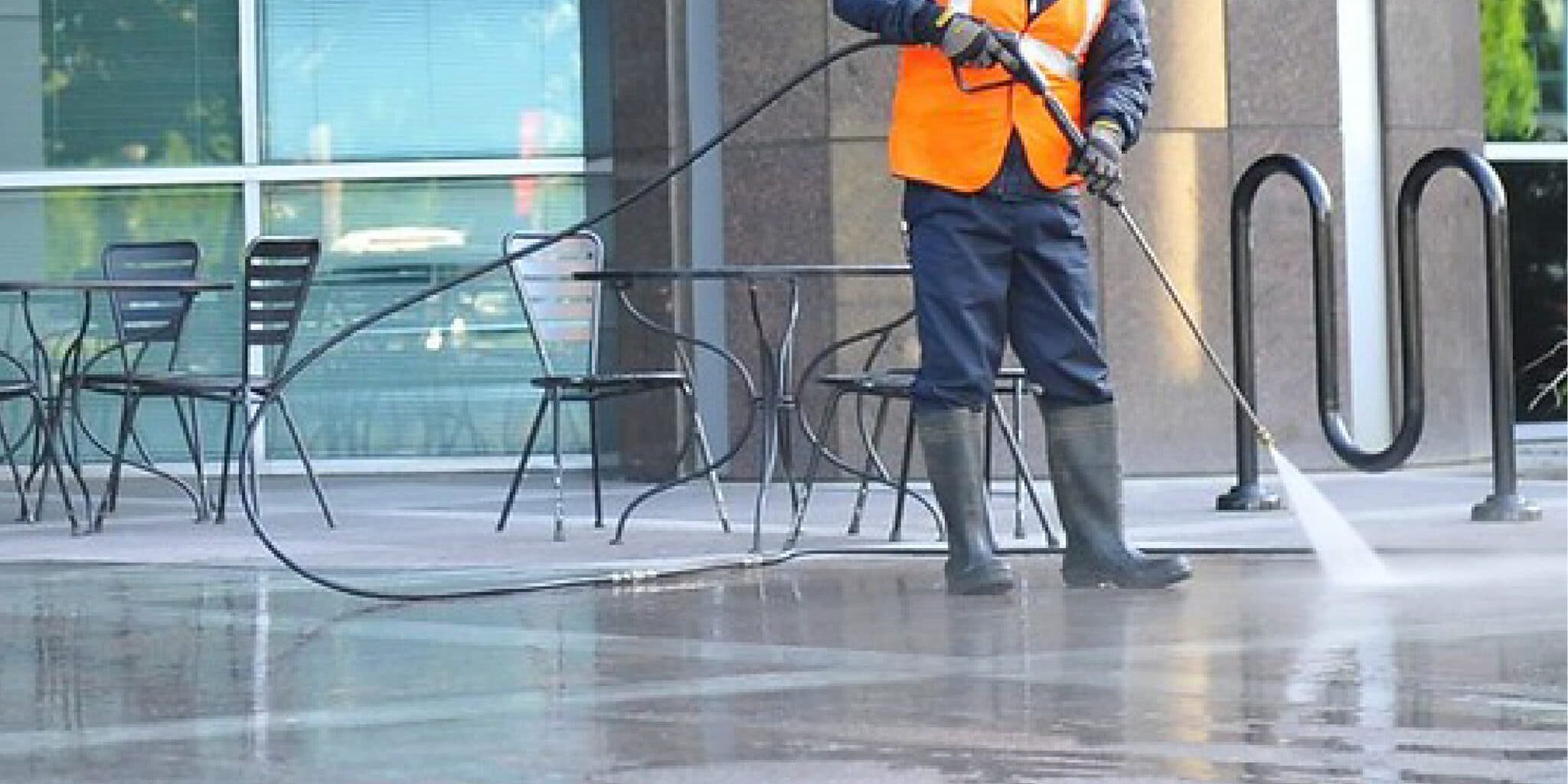
So, your residential power washing business is thriving. You’ve mastered driveways, decks, patios, and siding. Clients are happy, referrals are rolling in, and your schedule is staying full. 👍🚿
But now you’re ready for the next level — commercial contracts. Bigger jobs. Recurring income. Less seasonal slow-down. More scale.
While commercial power washing can unlock new revenue streams, making the leap from residential isn’t just a matter of changing the surface you’re cleaning. It requires a shift in mindset, operations, and approach.
In this article, we’ll walk you through everything you need to know to transition successfully from residential work to landing and managing commercial power washing contracts. 🧼💼
🧠 Why Consider Commercial Work?
Commercial power washing isn’t “better” than residential — it’s just different. But for many business owners, it offers clear advantages:
💵 Bigger Jobs
Commercial jobs often come with higher ticket prices — parking garages, storefronts, warehouses, and fleets require more labor and equipment but yield much larger payouts.
🔁 Recurring Work
Many commercial clients need regular service — monthly, quarterly, or semi-annually — which means predictable income.
⏳ Less Seasonality
While residential jobs slow in colder months, many commercial properties require year-round upkeep.
🧑💼 Fewer Decision-Makers
You’re often working with a property manager or operations head, not a homeowner who wants to negotiate every penny.
🚧 How Commercial Jobs Differ from Residential
Before you leap, it’s important to understand what changes:
| Residential | Commercial |
|---|---|
| One-time jobs | Recurring contracts |
| Emotion-driven buyers | Logic-driven buyers |
| Easy scheduling | May require after-hours/weekend work |
| Simple estimates | Formal bids & RFPs |
| Fast decisions | Slower approval processes |
| Smaller surface areas | Large-scale or multi-day work |
Being prepared for these differences will help you land — and keep — commercial clients. 🧠📋
🏗️ What Services Are In-Demand in Commercial Power Washing?
You don’t need to offer everything to everyone. But it helps to know what businesses are already paying for:
- Storefront cleaning 🏬
- Dumpster pad sanitation 🗑️
- Gas station concrete degreasing ⛽
- Parking lot and garage washing 🚗
- Graffiti removal 🎨
- Building facade cleaning 🏢
- Fleet washing 🚚
- Warehouse floors 🏭
- Restaurant vent hoods or patios 🍽️
Start with services closest to what you already do, then expand strategically.
🧰 Upgrade Your Equipment and Capabilities
Commercial jobs can expose the limits of residential gear. Here’s what you may need to compete:
- Hot water machines (for grease/oil removal) 🔥
- Surface cleaners with wider paths 🌀
- Water reclamation equipment (for EPA compliance) 💧
- Larger tanks or trailer setups 🚛
- Lifts or scaffolding access for multi-story work 🏗️
You don’t need everything at once — but know what’s expected in your target industry.
💡 Tip: Rent equipment for your first big job before investing.
Browse Amazon Here For Commercial Pressure Washers And Accessories
📑 Create Commercial-Ready Documentation
Professional clients expect professional paperwork. Before submitting bids or estimates, make sure you have:
- Proof of insurance (general liability, worker’s comp if applicable) 📄
- W-9 form for tax purposes
- Business license
- SDS sheets for chemicals used 🧪
- Written safety protocols
- Company capability statement (overview of your business/services)
- References or portfolio from past jobs 📸
Having a clean, professional presentation builds trust — and helps you stand out from residential-only competition.
💬 How to Find Your First Commercial Clients
Landing your first commercial contract may take more effort than knocking on homeowners’ doors — but it’s totally doable with the right approach.
📞 Cold Outreach
Make a list of:
- Property management companies
- Strip malls
- Restaurants
- Office parks
- Small factories or warehouses
Call and introduce yourself. Drop off a flyer or business card. Ask who handles exterior maintenance and when they rebid their contracts.
🧑🤝🧑 Network Locally
Join your local:
- Chamber of commerce
- BNI (Business Network International) chapter
- Small business meetups
These are great places to meet property managers, contractors, or business owners who can open doors.
💻 Use Online Tools
Check local government and school district websites for RFPs (Request for Proposals) or maintenance bids. Many municipalities hire power washers on contract.
💡 Bonus Tip: Create a page on your website specifically for commercial clients. Include industries served, insurance info, and contact details.
💬 Pitching to Commercial Clients: How to Win Contracts
This isn’t about being the cheapest. It’s about showing you’re reliable, prepared, and professional.
Here’s what to highlight:
- Your track record (even if only residential, emphasize consistency and satisfaction)
- Your systems (on-time arrival, clear invoicing, safety compliance)
- Your equipment and capabilities
- Your insurance coverage and certifications
- Your commitment to long-term service
And most importantly, your pitch should solve their problems.
“We can remove those oil stains by the dumpsters and keep your storefront spotless for customers.”
Don’t just talk about washing — talk about results. 💡
📆 How to Schedule Commercial Jobs
Commercial work often happens:
- After hours (for retail or restaurants) 🌙
- On weekends
- On a rotating schedule (monthly, quarterly)
Be prepared to work off-peak times. You’ll often have access to the property when it’s empty, which makes jobs faster — but you may need to flex your hours.
🧾 Tip: Build these jobs into your weekly schedule to fill in gaps between residential jobs.
📊 Pricing Commercial Work
Pricing is one of the trickiest parts of commercial work — underbid and you’ll burn out; overbid and you’ll lose the job.
Consider:
- Size and complexity of the job
- Type of surface and level of dirt/grime
- Access (is it on the second floor? Tight alley?)
- Time of day (after-hours may cost more)
- Frequency (recurring jobs can be discounted)
- Material costs and labor
📌 Always account for:
- Insurance overhead
- Equipment wear and tear
- Travel time and fuel
💬 Tip: Bid per square foot or by job scope. Offer a clear proposal — not just a number.
🧠 Final Thoughts: Grow Smart, Not Just Big
Transitioning to commercial power washing is a natural evolution — but it’s one that needs planning, patience, and a polished presentation. 🧼🏢
To recap:
✅ Learn the differences between residential and commercial jobs
✅ Upgrade your gear and documentation
✅ Start with approachable targets like storefronts or restaurants
✅ Pitch solutions, not just services
✅ Deliver consistent, professional results every time
Once you’re in — and deliver results — you’ll often find that commercial clients stay with you long-term, offering both stability and growth. 🔁💰
Browse Amazon Here For Commercial Pressure Washers And Accessories






